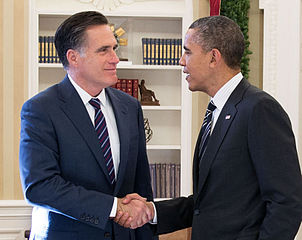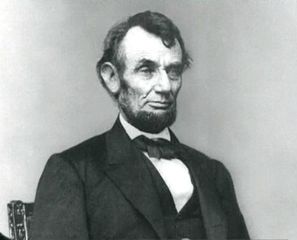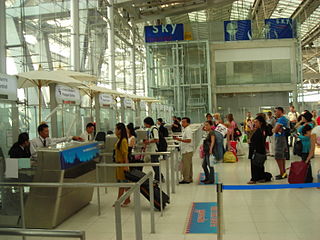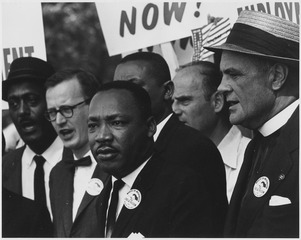Josh Barro of Bloomberg has a good piece on 5 terrible policies which both Barack Obama and Mitt Romney endorsed in last night’s US presidential debate. My only complaint about Barro’s article: its obvious failure to mention immigration policy. The immigration status quo, not just in the US but in virtually every modern nation-state, is regressive, degenerate, and immoral. Maybe this universality makes it unremarkable in the US, but keeping the borders closed certainly qualifies as one of the “Worst Ideas Romney and Obama Agree On,” per Barro’s headline. Continue reading Whoever he is, the next US President will be wrong on immigration
All posts by John Lee
Abe Lincoln would be a Russian now
The subject of 19th-century immigration almost inevitably comes up in open borders debates. Open borders advocates see a lot to desire and emulate in the 19th century approach to immigration — namely:
Give me your tired, your poor,
Your huddled masses yearning to breathe free,
The wretched refuse of your teeming shore.
Send these, the homeless, tempest-tost to me,
I lift my lamp beside the golden door!
The 19th-century-related counter-example I’ve seen here from restrictionists is “Where are the Native Americans/other aboriginal peoples of the world now?” A related, more specific, example is how Mexico’s open borders allowed whites from America and Europe to enter their state of Texas, and eventually secede altogether from the country. These aren’t very convincing examples for many reasons, but the biggest one I can think of is that 19th-century contemporaries, by and large, took cognisance of these problems, and nevertheless agreed that keeping borders open remained the just, humane thing to do. Continue reading Abe Lincoln would be a Russian now
What do open borders advocates really want?
How do we translate the cause of open borders into specific policy recommendations? The range of policies entailed by “looser border controls” is wide — and the range of policies which might be mistakenly attached to the “open borders” idea is even wider. It is important to be clear on definitions when we discuss the idea of open borders, lest we waste time on proposals which few actually support.
Before I continue, note that I speak only for myself; not for Vipul, not for Nathan, and not for any other advocate of open borders, even though we all support greater immigration. In fact, immigration supporter Tyler Cowen declares himself opposed to open borders, even though I suspect under my definition of “open borders”, he may be one of our greatest advocates.
It is crucial to be clear about what “open borders” really means in terms of end goals. Being vague about the meaning of “open borders” makes it easy for restrictionists to attack straw men, while ignoring the strongest arguments for open borders. So when I seek open borders, here is what I want: people to be able to cross international borders at will, insofar as this is administratively practical.
Continue reading What do open borders advocates really want?
“The arc of the moral universe is long, but it bends toward justice.”
I am no recent convert to the cause of open borders, but like others in the blogosphere, including Vipul himself, I have become increasingly convinced that this is the most important moral cause of our times. Vipul has kindly invited me to join this blog, and I consider it a great privilege. My convictions about immigration stem not only from intellectual pondering, but personal experience.
A bit about myself: my father is Chinese Malaysian and my mother is Filipino (with some Chinese heritage). My parents met during graduate school in Thailand. I was born while my father was completing further studies in Japan. I lived in Singapore for the first few years of my life, and grew up in Malaysia, a country I am proud to call home. I came to the United States for college, unexpectedly obtained a green card before graduation, and presently work in a major US retail bank. Along the way, I’ve studied abroad in the United Kingdom and held immigrant visas in both Australia and New Zealand (both rather long stories for another time there).
As a matter of nature, of genetics, I literally would not be here today without immigration. As a matter of nurture, of life experiences, I would not be who I am today without immigration. I’ve virtually lived the benefits of open borders. Being able to cross borders has taught me countless things about life and about humanity; it has given me countless acquaintances and friends; it has made my life immensely richer in ways you can never aspire to place a dollar value on. If we do talk dollar values, I earn much more in my current job than I would at the highest-paying similar alternative in Malaysia.
Yet I have enjoyed the benefits of immigration through blind luck: I have caught more than my fair share of lucky breaks. I had no say about being born into a relatively wealthy, well-educated and highly mobile family, the biggest lucky break of all. Nothing entitles me to the great blessings I have had, the same blessings which have largely been denied to, say, the children of farmers in Bangladesh.
Continue reading “The arc of the moral universe is long, but it bends toward justice.”




